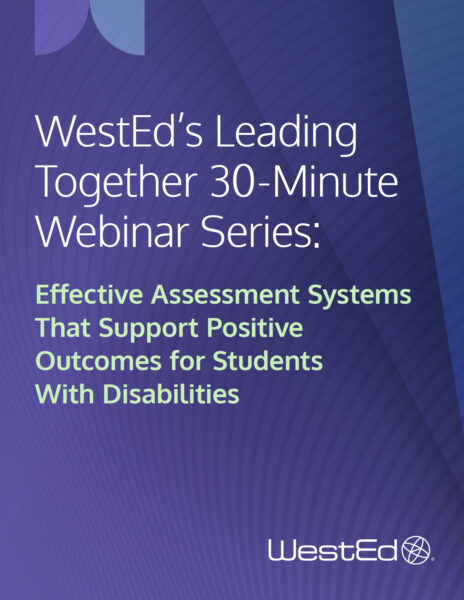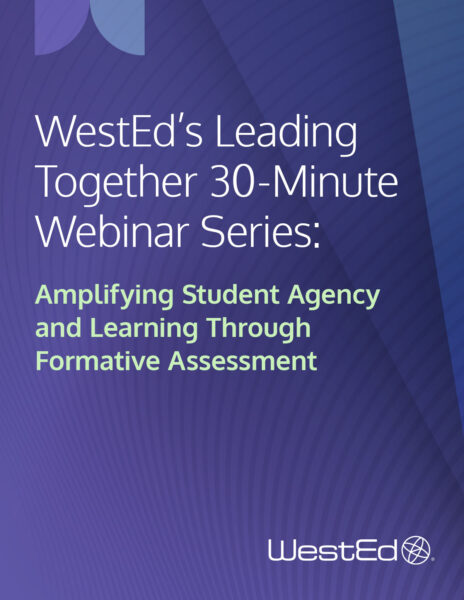How can education leaders ensure that assessments provide meaningful information that can guide classroom learning and inform local education agency improvement goals?
In this recorded webinar, explore the key characteristics of coherent and effective local assessment systems that align with your vision for teaching and learning. Our assessment experts take a close look at the characteristics of assessments that are relevant to instruction and build your capacity to evaluate and strengthen the coherence and effectiveness of your assessment system.
Session Topics
- Local assessment systems
- Evaluation of assessment systems
- Key elements for achieving coherence and effectiveness
- Building of leadership capacity for system alignment and improvement
Resources From the Session
- Components of a Coherent and Effective Assessment System (PDF)
- Key Characteristics of a Coherent and Effective Local Assessment System (PDF)
- Comprehensive Assessment Solutions (Webpage)
Featured Speakers

Julie Webb
Webb is a senior program associate on the Assessment for Learning team at WestEd and a former classroom teacher and reading specialist with National Board Certification in early and middle childhood literacy. She leads projects focused on resource and professional development to promote and strengthen educator understanding and use of assessments and assessment systems. She also leads research and evaluation projects for clients seeking to improve professional learning for educators and outcomes for students. Webb holds an EdD in educational and organizational leadership.

Tiffany Katanyoutanant
Katanyoutanant is a research associate on WestEd’s Assessment for Learning team. Her work focuses on using assessment to inform effective learning systems. At WestEd, she works with state and local education agency clients to design and enact research studies that inform instructional initiatives and continuous improvement efforts. Her prior WestEd projects have included conducting comprehensive studies of assessment system design and understanding how learning systems use assessment data to inform instructional decision-making.



